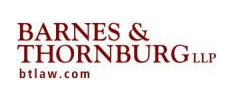Today’s Labor Updates:
National Labor Review Board (NLRB) Strikes Down Non-Solicitation Policy
Canada: Labour leaders hammer premier on union certification bill
National Labor Review Board (NLRB) Strikes Down Non-Solicitation Policy
Non-solicitation and non-distribution policies are part of “old school” labor law, but on May 30, 2014, the National Labor Relations Board took a fresh look at these policies and struck down a non-solicitation policy contained in the employee handbook of Food Services of America, Inc. Food Services of America, Inc. and Paul Louis Carrington, 360 NLRB No. 123.
Even though the Board affirmed most of the administrative law judge’s conclusions which dismissed virtually all of the claims against the employer, the Board took the opportunity to strike down the employer’s solicitation policy.
The handbook policy stated:
Solicitation discussions of a non-commercial nature, by Associates, are limited to the non-working hours of the solicitor as well as the person being solicited and in non-work areas. (Working hours do not include meal breaks or designated break periods.)
The Board found that this policy restricted Section 7 activity because it prohibited solicitation, including union solicitation in work areas during non-work time. In an extremely brief discussion of the rule, the Board determined that the rule here “expressly provides that solicitations are limited to non-working hours and … non-work areas (emphasis added), indicating that both conditions must be satisfied before solicitation is permitted. The Respondent argues that the rule permits solicitation in work areas when both employees are on non-work time. Perhaps that was what the Respondent meant to say, but it is not what the rule says.”
The Board’s opinion also contains an extended discussion of the Board’s continually expanding jurisprudence on protected concerted activity. In its decision, the Board construed a series of instant messages between two employees as discussions about job security which it found to be protected under Section 7 of the Act.
The Board’s opinion is available here.
Canada:Labour leaders hammer premier on union certification bill
PCs say some workers told government they want secret ballot
CBC News Posted: Jun 04, 2014 8:14 AM NT| Last Updated: Jun 04, 2014 8:21 AM NT
Union leader Lana Payne is still furious after a meeting Tuesday evening with Premier Tom Marshall over a new bill that labour activists say will roll back workers’ ability to organize.
The Federation of Labour is accusing the government of caving in to business with a bill that will make it harder for workers to unionize. Thoughts?
“Let’s state it for what it is. This is an attack on worker’s rights and on labour rights,” Payne told CBC News.
Payne, Atlantic director for the Canadian super-union Unifor, met with Marshall to discuss Bill 22, which was introduced in the House of Assembly this week. The bill, if made law, will change one of the rules involving union certification.
As it currently stands, a union can be formed automatically if 65 per cent of a company’s employees sign union cards. Those rules were implemented in 2012.
But two years later the provincial government is aiming to change the rules once again, with legislation that would require workers to use a secret ballot process instead.
Payne said the message government is sending to workers is very clear.
“This is about catering to the employer lobby that does not want the opportunity for workers to organize themselves into a union,” said Payne.
Changes based on ‘research’
Earlier Tuesday in the House of Assembly, the minister responsible for the Labour Relations Agency said Bill 22 was in the best interest of workers and residents in Newfoundland & Labrador.
Service NL Minister Dan Crummell said the changes are about “bringing democracy back into the [union] certification process.”
As to why government again wants to change the way it allows unions to form, Crummell cited research that suggests that secret-ballot union voting is now a more preferred route than card certification.
“Back in 2012 when we brought the amendments to the floor of the House, we thought we were coming in with fair and balanced legislation. Since then, we have heard concerns. We have heard concerns from employers and we have heard concerns from workers,” said Crummell.
“When we did the review … we looked at the research behind what is happening in the labour movement, what is happening with card-based certification and with union certification. What we found is that workers overwhelmingly want that vote on the ballot, in a secret-ballot vote,” he told the house.
NDP calls it government backtracking
NDP Leader Lorraine Michael wants government to withdraw Bill 22. She said government did not consult with union and labour leaders about the changes.
Michael said decisions having to do with things like union certification are supposed to be done in a three-way consultation, including representation from government, the union as well as the workers’ side.
She said when it comes to Bill 22, a part of that equation has been left out.
“We have constantly heard from government that it consults with the labour relations committee made up of government, unions, and employers and they make decisions together at the tripartite table,” Michael said in the legislature.
“Unions had no idea that government was backtracking on a decision made only two years ago. The tripartite table lost a leg apparently,” Michael said.
Payne said Marshall agreed on Tuesday night to consider the arguments that union leaders presented.



